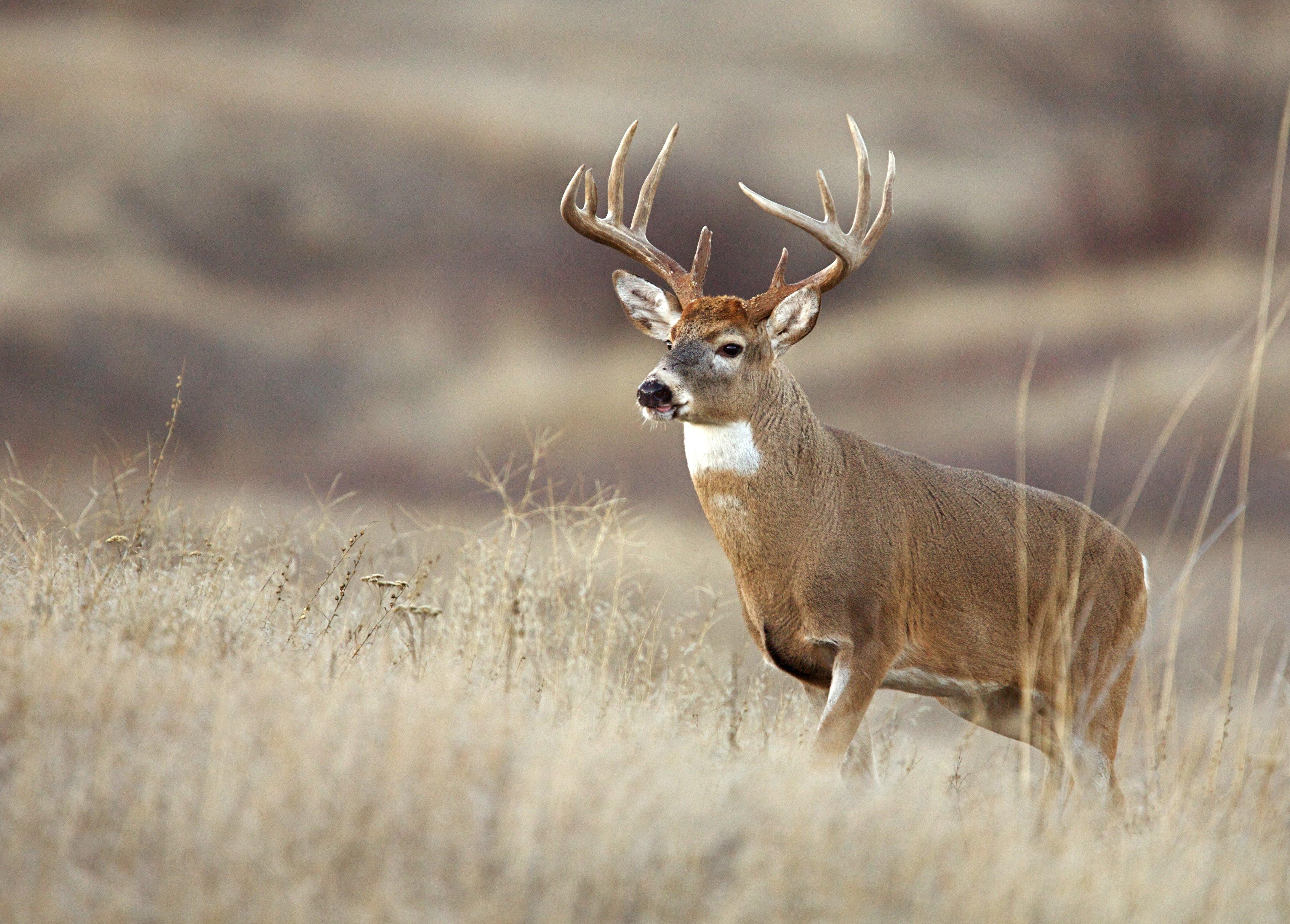700,000
Est. Whitetail Population
460,000
No. Licenses Sold Annually
$52
This includes a $32 license fee and $20 deer permit.
Resident hunting license and deer permit
$300
This fee includes a $300 deer permit.
Non-resident hunting license and deer permit
192 5/8"
Taken by Jason Boyett in Pushmataha County in 2007.
Record B&C Typical Stat
115
Total B&C Typical Entries
247 2/8"
Taken by Bill Foster in Johnston County in 1970.
Record B&C Non-Typical Stat
155
Record B&C Non-Typical Entries

Check out the latest info for Oklahoma. Image by Tom Reichner
Season Dates (2023):
Archery season runs Oct. 1 to Jan. 15. Muzzleloading opportunities are open Oct. 28 to Nov. 5. Rifle hunters can hit the field Nov. 18 through Dec. 3. Youth season is Oct. 20 through 22. The holiday antlerless season is Dec. 18 through 31. These are the dates set when published. Check the Oklahoma Department of Wildlife Conservation WEBSITE to confirm.
The Grade: A
We know, it’s surprising to see such an overlooked state receive an A grade. But that’s exactly why it does, among other reasons. Licenses and tags are affordable, deer populations are abundant, trophy potential abounds, hunter numbers are pretty low, and there’s even some good public land to hunt.
For whatever reason, Oklahoma doesn’t receive the recognition it deserves. Hunters who understand this and try the Sooner State can gain from other nonresidents’ oversight. Good hunting exists statewide. The habitat is diverse. Choose specific regions and counties based on the terrain types you’re most comfortable with.
Further, according to Dallas Barber, a big-game biologist for the Oklahoma Department of Wildlife Conservation, the state’s deer population is on an upward trend, the hunting is improving statewide and all corners of the state have trophy potential.
“These are the good old days,” Barber said. “Deer numbers are good, quality of bucks is on the rise [and] doe harvest is within our management goals.”
Antler Nation Knowledge:
The DIY deer hunter has almost 1.7 million acres of public ground to roam. Much of this is properly managed for older age-class bucks. Although most WMAs are in the eastern half of the state, don’t ignore western counties.
“I won’t give away anyone’s secret spot, but looking at our big-game report, Kaw WMA, Three Rivers WMA, and Black Kettle WMA all seem to be very popular,” Barber said. “But nothing can make up for time spent in the woods. Learning your individual area that you hunt will stack the deck in your favor when trying to outsmart or pattern deer.”
Overall, there are MANY PUBLIC OPPORTUNITIES, including national forests, wildlife management areas, and U.S. Army Corps of Engineers land. But the crown jewel is the Oklahoma Land Access Program. Drilling down, consider Three Rivers, Deep Fork, James Collins, Osage, and Lexington WMAs. Wichita Mountains — managed by the U.S. Fish and Wildlife Service — is another good bet. And don’t overlook the Ouachita Mountain range, as there’s a good bit of public land in the area. The Sooner State also offers more than 100 great hunts via its Controlled Hunt Program, such as the McAlester Army Ammunition Plant hunt. Many of these are available to nonresidents through a random drawing process.
Public land aside, Oklahoma’s top trophy-producing counties are somewhat random and scattered throughout the state. Historically, the most Booners come out of Comanche, Hughes, Love, Osage, Pittsburg, Pushmataha, Rogers, and Woods counties.










